Onward Christian Soldiers
[Part 13]
Note
This new version of Onward Christian Soldiers that I’ve compiled consists of the original contents published by Noontide Press in 1982 plus the “missing” text that, for reasons explained below, was in the Swedish version published in 1942.
I’ve also included some supplementary texts here giving the history of the missing parts of Day’s book. Also book reviews by Revilo Oliver and Amazon readers (see Part 1).
KATANA
Contents
Maps of Northern Europe & the Baltic States
THE REST OF DONALD DAY by Paul Knutson — 1984
EDITORIAL NOTE by Liberty Bell
The Resurrection of Donald Day — A review by Revilo P. Oliver. The Liberty Bell — January 1983
TWO KINDS OF COURAGE by Revilo P. Oliver. The Liberty Bell — October 1986
AMAZON REVIEWS
__________________
ONWARD CHRISTIAN SOLDIERS
Chapter
Introduction
Permit Me To Introduce Myself * (all new)
1 Why I did not go Home *………………………………. 1
2 The United States *………………………………………. 7
3 Latvia ………………………………………………………… 21
4 Meet the Bolsheviks *………………………………….. 41
5 Alliance with the Bear *……………………………….. 53
6 Poland ……………………………………………………….. 63
7 Trips ………………………………………………………….. 85
8 The Downfall of Democracy * ………………………. 93
9 Jews …………………………………………………………… 101
10 Russia *………………………………………………………. 115
11 Lithuania * ………………………………………………….. 131
12 Danzig ……………………………………………………….. 145
13 Estonia ……………………………………………………….. 151
14 Sweden ………………………………………………………. 159
15 Norway ………………………………………………………. 169
16 Finland ………………………………………………………. 183
17 England *……………………………………………………. 197
18 Europe *…………………………………………………….. 201
19 Epilogue *…………………………………………………… 204
Index of Names ………………………………………………….. 205
* Contains new material (dark blue text) missing from original Noontide edition.
MAP
of Northern Europe 1920s (click to enlarge in new window)
MAP
of Baltic States 1920s (click to enlarge in new window)
LIBERTY BELL PUBLICATIONS
June 1984
THE REST OF
DONALD DAY
by
Paul Knutson
Donald Day, who had been for many years the foreign correspondent of the Chicago Tribune in northern Europe, wrote a record of his observations, Onward, Christian Soldiers, in 1942. His English text was first published as a book in 1982. It was printed by William Morrison and appeared under the imprint of the Noontide Press of Torrance, California, As Professor Oliver pointed out in his review of that book in Liberty Bell for January, 1983, the text had been copied, with some omissions and minor changes, from an anonymously issued mimeographed transcription of a defective carbon copy of the author’s manuscript, which had been brought to the United States in someway, despite the vigilance of Franklin Roosevelt’s surreptitious thought-police.
That was not the first publication of Day’s book. A Swedish translation, Framat Krististridsman, was published by Europa Edition in Stockholm in 1944. (That paper cover, printed in red, green, and black, is reproduced in black-and-white on the following page.)
Copies of this book still survive in Sweden and are even found in some public libraries. There may still be a copy in the Library of Congress, where, however, it was catalogued and buried among the very numerous books of a different Donald Day, a very prolific writer who midwifed the autobiography of Will Rogers and produced book after book on such various subjects as American humorists, the folk-lore of the Southwest, the tourist-attractions of Texas, and probably anything for which he saw a market, including a mendacious screed entitled Franklin D. Roosevelt’s Own Story. By a supreme irony, the Library concealed Framat Kristi stridsman in its catalogue by placing it between the other Day’s Evolution of Love and his propaganda piece for the unspeakably vile monster whose millions of victims included one of the last honest journalists.
The Swedish translation contains some long and important passages that do not appear in the book published in California and are not found in the mimeographed copy. By translating these back into English, I can restore Donald Day’s meaning, but, of course, I cannot hope to reproduce exactly the words and style of his original manuscript. I can also restore from the Swedish the deficiencies of the mimeographed transcript.
It seems impossible to determine now whether the parts of Day’s work that are preserved only in the Swedish were deleted by him to shorten his text when he sent a typewritten copy to the United States or were added by him before he turned his manuscript over to the Swedish translator at about the same time. At all events, the Swedish now alone provides us with some significant parts of bay‘s book and many Americans will want to have Day’s Work complete and entire.
For the convenience of the reader, I have, by arrangement with the publisher of Liberty Bell, included corrections of the printed English text where it departs, through negligence or misunderstanding, from the mimeographed text from which it was copied. I have passed over obvious typographical errors in the printed book, and omitted small and relatively unimportant corrections. For example, near the end of p. 44 of the printed book, the sentence should read, “All reported that the officials of the Cheka, later known as the GPU and NKVD, were Jews.”
Day did not use footnotes, so the reader will understand what all the footnotes [indicated by the symbol *] on the following pages are my own explanations of the text.
The supplements below are arranged in the order of pages of the printed book, as shown by the note in the small type that precedes each section, The three sources are discriminated typographically thus; Italics show what is copied from the printed text to give continuity.
Ordinary Roman type is used for what is in the mimeographed copy but was omitted from the printed version. This, of course, is precisely what Day wrote in English.
What I have translated back from the Swedish appears in this style of type. These passages, as I have said, convey Day’s meaning without necessarily restoring exactly the words he used in his English original, from which the Swedish version was made.
*****
Editorial Note
Liberty Bell
With the foregoing supplements, we have at last as accurate a text of Donald Day’s Onward, Christian Soldiers as we are likely to have, barring the remote possibility that the manuscript Day gave to his Swedish translator may yet be discovered.
The Swedish translation is pedestrian, as indeed is Day’s English style, but a comparison of the Swedish with the extant parts of the English assures me of the translator’s general competence. In one passage, which we have only in the Swedish, in which Day reports his refusal to become a well-paid and dignified member of our Diplomatic Service with a “little Morgenthau” as an “adviser” to tell him what to do, the translator was evidently confused by the irony of some English phrase such as “executive for a Jew” and reversed Day’s obvious meaning;, this was corrected in the foregoing text.
The mimeographed version is evidently a transcription from Day’s carbon copy, with only such errors as only the most expert typists can entirely avoid. There is, however, one very odd error in the mimeographed version corresponding to our printed page 4 above; it reads “the Great Rocky mountains of the border of Tennessee and North Carolina.” That is geographically absurd, of course, and the Swedish (stora Rijkiga Bergen) shows that Day wrote “Great Smoky mountains,” as we have, printed above. It is probably only a coincidence that the Swedish word for “Smoky” could have suggested, to a person who knew no Swedish, the error made by the typist in California who copied Day’s carbon copy.
When Day relies on his recollection of what he was told years before, his memory is sometimes faulty, and we have naturally made no changes in what he wrote. He makes an obvious error on our page 4, where he says that the Cherokees were driven from their lands and moved to Indian Territory “toward the end of the last century.” Actually, the expulsion of the Cherokee Nation by an American army took place in 1838. The Cherokees, by the way, were the most nearly civilized of all the Indian tribes in the territory that is now the United States and Canada, and it is true that their expulsion from the lands that had been guaranteed to them by treaty inflicted great hardships on them: they lost most of their property, including their negro slaves, and large numbers of them perished as they were quite brutally herded from the Appalachians almost half way across the continent to what is now the southern border of Arkansas.
Ethnologists who have made intensive studies of the Indians of North America (e.g., Peter Farb) regard Sequoyah (Sequoia) as perhaps “the greatest intellect the Indians produced.” He was the son of a Cherokee woman by an unidentified white trader, and, growing up with the mother’s people, regarded himself as a Cherokee. He, however, was an exception to what Day says about half-breeds. Day may have been confused about the date of the expulsion because a few of the Cherokees succeeded in hiding from the perquisition in the wilds of the Great Smokies and were eventually given the small reservation they now occupy east of Bryson City in the toe of North Carolina. There was some agitation about them “near the end of the last century.”
The circumstances in which Day’s carbon copy was smuggled into the United States remain obscure. When the mimeographed transcription was made and first issued, it contained a prefatory page on which an anonymous writer said,
“It is my understanding that this book was published in; 1942, and then merely made an appearance at the book-sellers, when all copies were immediately withdrawn and destroyed without a single copy escaping the book-burners, I was also told that Mr. Day died shortly after this incident.”
The page was presumably withdrawn when its author learned that Day was still alive at that time and an exile in Helsinki, since the Jews who rule the United States would not permit him to return to his native land.
It is curious that the man who made the transcription, which did effectively preserve Day’s work for the future, and who was evidently a resident of California, had heard a somewhat less plausible version of the rumor that was current in Washington in 1943. (See the review by Professor Oliver in Liberty Bell, January 1983, p. 27). It is quite possible that the source of both rumors was an effort by the apparatus of the great War Criminal in the White House to prevent the publication of the Swedish translation, which, as Day tells us in the last item in our supplements, was delayed in the press for two years by a “paper shortage” and it is noteworthy that the paper for it was finally obtained in Finland, not Sweden,* Until the book was finally published in 1944, the enemies of mankind could have imagined that their pressures on Sweden had effectively prevented Day’s exposure of one phase of their activity from ever appearing in print.
[* Day’s book was published by Europa Edition in Stockholm, which, however, had to have the printing done by Mercators Tryckeri in Helsinki. Although copies of the Swedish book have been preserved, Day’s work would not now be generally known — and would be supposed lost by Americans who heard of it — if the anonymous gentleman in California had not issued his mimeographed transcription.]
_______________________
KATANA — The Liberty Bell article continues with a list of text to be added or amended to the Noontide edition. All these changes (indicated by the dark blue text) have been entered in this expanded version of Onward Christian Soldiers.
Word Totals for the Additional Text
Introduction – –
Permit Me To Introduce Myself – 5,738 (all new)
Chapter 1 – 23
Chapter 2 – 307
Chapter 3 – –
Chapter 4 – 653
Chapter 5 – 1,225
Chapter 6 – –
Chapter 7 – –
Chapter 8 – 408
Chapter 9 – –
Chapter 10 – 907
Chapter 11 – 6
Chapter 12 – –
Chapter 13 – –
Chapter 14 – –
Chapter 15 – –
Chapter 16 – –
Chapter 17 – 2,167
Chapter 18 – 1,179
Chapter 19 – 89
Total words in original = 85,311
Total additional words = 12,702
_______________
Total words in expanded version = 98,013
ONWARD
CHRISTIAN
SOLDIERS
1920-1942: Propaganda, Censorship
and One Man’s Struggle to Herald the Truth
Suppressed reports of a 20-year Chicago Tribune
correspondent in eastern Europe from 1921
Donald Day
With an introduction by Walter Trohan,
former chief of the Tribune’s Washington bureau
THE NOONTIDE PRESS
Chapter 14
Sweden
When we are 26 we think we know so much. When we approach twice that age we look back and realize our education was then only half complete and life still has much, very much, to teach us. Some sage once remarked that a man spends the first half of his life longing for the second half and the second half regretting the first.
[Image] Map showing Goteberg [Goteborg], on the west coast of Sweden.
When I arrived in Goteberg [Goteborg] in January 1921, I was the only American newspaperman accompanying Ludwig Martens, unofficial Soviet representative in the United States, and his large staff back to Russia. I had only a Swedish visa on my passport, for my journey had been authorized and I had to travel to Washington the day before the steamer sailed to rush it through the State Department. When I left Marten’s party I looked forward to seeing them in Moscow as I had been told I would receive my Soviet visa in Riga.
[Image] The Hôtel Eggers in Goteberg in more recent times. Hôtel Eggers is the third oldest hotel in Sweden still in operation. Parts of the building date from 1820, but the main structure as it is today was built in the 1880s.
The Hotel Eggers in Goteberg was an old fashioned hostelry with high ceilings, large comfortably furnished rooms, the sort of hotel one occasionally encounters in Southern cities in America. After bathing for a fortnight in salt water I was anticipating a fresh water bath in the hotel and ordered the maid to prepare one for me.
The bathroom was situated at the end of the hall and I noticed with surprise there was no lock on the door. I saw the maid seated at the end of the corridor and so I undressed and entered the tub. A few moments later the door opened and a husky, attractive girl about 25 years old with pretty red hair entered and, saying: “Gud Tag,” took the soap and brush from my paralyzed hands and began to scrub me as though I were about four years old.
[Page 160]
[Image] One of the bath tubs at the hotel.
As the scrubbing proceeded I made vain attempts to start a conversation. She did not speak American and my foreign lingual equipment consisted merely of a smattering of Spanish. The bath seemed finished in record time and after a shower she wrapped me in a linen towel as large as a bed sheet and I sat on a couch paralleling the bath tub loath to lose her company.
In my boyhood out in California, some of our neighbors were families of Swedes, and I recalled that Swedish in Sweden is Svenska whereupon I energetically demanded a Svenska Massage. The girl shook her head laughing, saying “loge Massage.” She turned away and began to wash out the tub. I leaned forward, picked up her dress and slapping her attractive bottom again demanded Svenska massage. She turned quickly, but instead of an embrace I was caught in a half-nelson and flopped me over on my stomach and she slapped me back on the same place with interest. Still laughing, she left the room.
Since that time I have had many unusual baths, but none quite so interesting. In Stockholm, some years later, when I was covering the World Christian Conference on Life and Work I had another experience connected with the bathtub. I was stopping in the Strand Hotel where each morning I had a luxurious bath. Kaija, the Finnish bathmaid, was a mountainous woman of tremendous strength. One morning, as I was sitting in the tub awaiting the usual administrations, the door opened and in marched Kaija accompanied by a blushing young girl who was anything but hard to look at.
Kaija took the soap and brush and I indignantly demanded an explanation. Kaija blandly informed me the girl was going to wash me. “Oh, no, she ain’t,” I answered telling her to order the girl from the room. “No,” said Kaija. “The girl remains.” Then I suggested that Kaija should leave the room and if the girl wanted to risk scrubbing me it would have to be done without a witness. “No,” said Kaija, she would remain and the girl would stay and I was to be scrubbed by the embarrassed maiden. The situation seemed perilous and to save myself I splashed them both with water until they retreated. That morning I had to scrub myself.
A short time later when I appeared in the lobby I was greeted with laughter. I asked the manager to tell me the joke and I would also enjoy it.
[Page 161]
Well it seemed that Kaija was getting old and had been clamoring for an assistant for some time. The management had finally permitted her to employ a helper so Kaija thought she would begin her course of instructions in bathroom technique upon my person and was indignant at my behavior. The hotel staff thought it was a good joke. I agreed. I don’t know where and how the assistant’s education was completed but thereafter Kaija no longer submitted me to experiments.
Sweden’s baths have galvanized more than one foreign visitor. During the great church conference on Life and Work I was seated in the lobby of the Grant Hotel talking with Dean Shailer Matthews of the University of Chicago. S. Parks Gadman, one of America’s noted preachers, asked if we had heard of the terrible adventure Dr. Timothy Stone, also of Chicago, had survived that morning. He went on to tell of Dr. Stone’s first encounter with a bathmaid, how she refused to leave the bathroom and insisted on giving the prelate a good scrubbing despite his protests.
I told the American visitors about Swedish bathing customs and that morning made inquiries, trying to discover the name of the preacher who was reported to have purchased a pair of bathing trunks to wear into the bathroom. That night I sent a dispatch beginning:
“American church goers representing them at the international church conference in Stockholm, for the first time since they were babies, were being scrubbed in the tub by attractive bathmaids.”
That was an unusual opportunity to describe Swedish bathing customs and their attendant delights. The story was not only published on the first page of The Tribune but was cabled back to Stockholm where it appeared in the papers giving the Swedes a good laugh. A delegation of our clergymen called on me pleading that the news of the conference should be treated in a more dignified manner. I had cabled many columns of news about the conference and reported the heroism of the Crown Prince who attended every session and listened to hours of religious discourse without falling asleep. I still think the Swedish bath story was the best one I wrote that year. It created quite a sensation among American church goers and when the American delegates returned home they found their audiences much more interested in Swedish bathroom technique than in the conference itself.
[Image] Stockholm in the 1930s.
After traveling for several years in northeastern Europe, the first day I spent in Stockholm on this visit I had a strange impression which I could not immediately analyze. It was only the next day I suddenly realized it developed from the fact that for the first time in very many years I had encountered a city whose inhabitants were all of the same racial type, they were all Swedes. There are few cities in Europe populated exclusively by one nationality and race.
[Page 162]
Another striking sight is the large number of tall men, six feet and more, one sees on the streets and in public gatherings. The fact so many Swedes are tall is due to peace and good diet as much as to the fact the Nordics are a tall race. Napoleon’s war, according to military experts, reduced the stature of the average Frenchman some eight inches. Twenty five years of Bolshevism did the same to the stature of the average Russian. Peace and good food are two essentials for a tall nation. This is proved by the army reports in Estonia, Latvia and Lithuania which showed a steady increase in the height of the recruits, whereas in Poland semi-famine conditions resulted in the average height of the Polish recruit decreasing in recent years preceding the war.
For the last twenty years the standard of living in Sweden has been, unquestionably, the highest in the world. Swedish cities have no slums.
The Swedes are comfortably housed, excellently dressed and wonderfully read. In the ultra-nationalistic, acquisitive world which existed up to 1939, Sweden had managed to acquire for herself an unusually large share of life’s comforts through investing her money at home, instead of abroad, rationalizing her industry for production of high quality goods and through the Swede’s ability to govern themselves with a minimum of corruption. There are other factors, but most of the important ones return to the fact that Sweden is a one hundred per cent Nordic country whose homogeneous industrious population has developed a high state of culture.* The Swedes are unable to comprehend a mentality as foul and degrading as that produced by Bolshevism. Where people are Christians and have high moral standards they instinctively prefer to believe the best about other people. This is not only true of Sweden. Americans, with their lower cultural and economic standards, have been also unwilling to believe the horrible stories coming from Russia simply because their imaginations were unable to comprehend them.
Good times promote a feeling of security and so the Swedes began to disarm. Their decision, some years ago, to disband some of their oldest regiments was contagious and Denmark did the same. The Estonian commander-in-chief General Johann Laidoner, commenting upon Sweden’s disarmament policy, told me Sweden was only able to disarm because the Baltic States were acting as a buffer between Russia and the Baltic Sea. He suggested Sweden should therefore take a greater interest in the Baltic countries and help to strengthen their economies so they could maintain larger and better equipped armies. General Laidoner’s interview was published in both Stockholm and Copenhagen and created some discussion, but these countries continued to show only a mild interest in the future of the Baltic States.
*The reader should remember this was written in 1942.
[Image] Johan Laidoner (12 February 1884 in Viiratsi, Estonia – 13 March 1953 in Vladimir, Russia) was a seminal figure of Estonian history between the world wars. His highest position was Commander-in-chief of the Estonian Army in 1918–1920 during Estonian War of Independence, and later also during 1924–1925, and 1934–1940.
[Page 163]
Disarmament was one of the cardinal principles of the Social Democratic parties of Scandinavia. Although it is perfectly true that big armaments cannot be maintained together with a high living standard, still it was largely the fault of the Finnish Social Democratic party that Finland was found so ill equipped for her war of survival against Bolshevism. And it was largely the fault of the Swedish, Danish and Norwegian Social Democratic parties that the European war found Scandinavia so poorly prepared for defense and with the projected Nordic Union still in the dream stage.
The Social Democratic movement is essentially a worker’s party, the means of political defense of the working class against capitalistic exploitation. This party has done very much for the working class. For many years it was an internationally minded class movement which contained many sympathizers with the class conscious government of Russia. The Social Democrats rejected the program of class warfare and the extermination of the non-proletariat as propagandized by Moscow, despite powerful Jewish influence within their ranks. The Social Democrats obtained power through their ability to organize the workers and control their votes. But this Jewish inspiration was powerful enough to prevent the Social Democratic parties abroad from recognizing the Communist party as a Jewish inspired-and-led organization with world imperialistic aims. The Social Democratic parties in all countries have tried to protect and defend the Jews and on various occasions have attempted to protect and defend the communists.
Concerned with parliamentary affairs and party politics, SD leaders have been either unable or unwilling to understand that Europe and the world was approaching the end of the liberal capitalistic era. They still fail to understand that the present war is being fought for the survival of Europe.
In those countries where the SD parties survive today along with their rival political groups, some leaders are trying to understand the present development and to peer ahead into what appears to be a fog on the horizon. Through this fog some things are already discernible. They are now world conceptions, a world divided into three great groups of nations. This division has already taken place. Europe is uniting herself around Germany because Germany is the only country which can provide the force and organizing power needed to coalesce Europe. To the great amazement of the majority of the American people, the United States government is taking over control of all North and South America. The situation in Asia seems to be approaching stabilization with Asiatic lands forming a constellation headed by Japan. Even should Japan be defeated then China will become the nucleus of Asiatic power for the White Man had very definitely lost out in Asia.
[Page 164]
England has been harpooned and, although her blood is dyeing the seven seas in her struggle for freedom and victory, Uncle Sam’s whaling ship is nearby to cook down the blubber. The Jew who fired the harpoon gun has become a member of Uncle Sam’s crews. When the whale has been converted into whale oil and the seas are peaceful again there are many indications that an entirely new conception of international trade will develop.
Today there are three independent democratic countries left in Europe, Switzerland, Sweden and Finland. But does anyone think for a moment that any one of these countries is going to be permitted to close an independent trade treaty, say for instance, with Japan? Japan sold some bicycles for approximately four dollars each in the Baltic States before the war. Her canned goods were to be found in Finnish stores for just half the prices charged for American and other canned goods.
Just as it was the great difference in the living standard which helped to cause so much ill feeling between Germany and Poland before the war, the difference of living standards between Asia and Europe will very quickly result in fresh wars unless measures are taken to prevent it. If Switzerland, Sweden or Finland decided they would like to have such a trade treaty and buy four dollar bicycles which would cost fourteen dollars if produced in a European factory, they would be regarded by other European nations as being disloyal to the community of Europe. When this war ends Europe will be obliged to consolidate for self protection. If she can win Africa in this war she won’t need to try and win it in the next.
The Social Democrats have had their day in the sun. If they can discard the Jewish class ideas they have imbibed over a period of generations and realize the era of class struggle has turned into an era of struggle for national existence which is, in reality, a struggle for European existence, they will be able to continue to play their part in national affairs. The defenders of the capitalistic and other classes must naturally do the same.
The community idea will become paramount. The alternative is provided by Moscow.
Up till the world war, Sweden’s geographical position gave her a “splendid isolation” from the turmoil and struggle in Europe. When the war broke out many Swedes had a comfortable feeling that perhaps the conflict would pass Sweden. There was some discussion about the need of spending more on armaments, but it is a fact that the Bolshevik attack upon Finland found Sweden unprepared for war and poorly prepared to help the Finns. Sweden did send a large part of her available suitable arms to Finland which made Sweden weaker than before. The sentiment of the Swedish people was strongly in favor of helping Finland but the government was in no position to expose the country to the danger of becoming involved in a European war. Sweden did not even break off relations with the Soviet government and neither did England or the United States although both loudly proclaimed the justice of Finland’s cause.
[Page 165]
Sweden’s attitude was not clearly understood in either Finland or other countries. I recall on one of my trips to the Finnish front, together with Babro Alving and some other Swedish correspondents, we stopped at Piaksamaki Junction where we lunched. There we met a Swedish speaking Finn, a forestry specialist, Major Berg of the Finnish army.
We talked for some time. It was in February and the outlook for Finland was growing darker with every day. The Major remarked that unless Sweden gave Finland active help Finland might go under in this war and then he said, it was going to be a handicap to be born a Swede in the future of Europe. Babro and her colleagues talked long and energetically to convince him Sweden was doing all she could. The Major shook his head unconvinced. He told us at parting that morning he had heard his eldest son, also a forester, had been killed at Kolleanjoki. He had another son, also in the front line, fighting.
There were many of us who did not understand Sweden’s policy. We had no means of knowing how badly armed and poorly prepared Sweden was for war. We thought those 8,000 Swedish volunteers with their wonderful equipment in training at Rovaniemi and other points could be multiplied many times over if Sweden so desired. We thought the entire Swedish army was just as well equipped. The Finnish-Soviet war was a tremendous shock to Sweden and as time passed it became more clear that of all the countries Sweden helped Finland the most.
As the struggle approached its climax and the Finns prepared to go down fighting to the disgrace of the entire world, Moscow became afraid she would also become involved in the European war. She did not feel prepared to attack Germany and she wanted Germany first to bleed herself white in a position war on the Western front against France and England. Germany was busy preparing her campaign in the West and her population, while morally strong, were not spiritually strong enough to face the prospect of a two-front war with adversaries of unknown strength. Military science is the most conservative science in the world.
So it is safe to say the unexpected collapse of France and the panicky retreat of England from the continent could not be foreseen or calculated by any of the combatants, let alone Sweden.
[Image] Grand Hotel in Stockholm.
The first secret meeting between the Finns and Soviets in the Grand Hotel in Stockholm resulted in an intensification of the propaganda campaign by Great Britain to persuade Finland to continue her war with Russia. Night after night the BBC broadcast London’s plea to Finland “to request aid.”
[Page 166]
If Finland had made this request it would have permitted England, under the covenant of the League of Nations, to land troops in Norway and transport them to Finland through Northern Sweden. England never mentioned a word about declaring war against Russia. The British press and the BBC bragged and boasted of the wonderful army and expeditionary corps she had formed expressly to help Finland. Repeated assurances were made to the English parents of soldiers in this army that they should not worry about their sons, that they were splendidly equipped for warfare in the Arctic.
I most certainly do not wish to give the impression I had anything to do with Finland’s decision. Some of her statesmen I have known for years. I consider them great men and am very proud of their friendship and know they are fully capable of making their own decisions. But I must report that from the beginning I felt that England was trying to deceive Finland.
I knew that England was unable to persuade France to attack Germany and she was unwilling and unable to do it herself. I knew the average Englishman was undersized and underweight and was no more fit for Arctic warfare than an army recruited haphazard from the population of New York City. I knew British strategy considered that one of the necessary requirements for the defeat of Germany was to cut her off from the rich iron ore fields of Northern Sweden which are located near a railroad running from Narvik, in Norway, to Lules [Lulea], a Swedish port in the Bothnian coast, and this was the only route which could be used to supply Finland with aid. I also know that Germany would not hesitate to invade Sweden if Sweden proved incapable of defending herself and her ore-fields from British occupation. I knew that Finland’s war for survival did not affect any vital interest of England and any offer of help from London was not altruistic. I knew that the Soviet government was unwilling to be drawn into the European war before Germany was weakened by her Western enemies. I also knew that the Soviet government was just as ambitious as the Czarist regime to expand westwards over Scandinavia and obtain harbors on the Atlantic coast.
[Image] Map showing location of Narvik and Lules [Lulea].
Therefore I felt that England was eager to bring Scandinavia into the war and that her offer of aid to Finland was only camouflage for a plan to fight Germany in Sweden and at the same time bring Russia into war against Germany on the side of the allies by offering her the Atlantic harbors she coveted. So I had many long conversations with my Finnish friends, in the course of which I argued as best I could against accepting England’s offer of help.
[Page 167]
[Image] Jewish British minister of war Hore Belisha.
This line of reasoning was later confirmed by no less a person than the erstwhile British minister of war Hore Belisha who, shortly after his resignation, published a signed article in Lord Riddledaic’s great weekly, the News of the World (for morons). In his article he admitted quite openly the British offers of aid to Finland really concealed a plan to occupy the ore-fields of Northern Sweden and also to invoke the covenant of the League of Nations to force Turkey to open the Dardanelles to enable the British fleet to enter the Black Sea and cover an attack against Germany through the Balkan States. Hore Belisha revealed that England’s policy towards Finland was just as filthy as that of the Roosevelt Trust which had not yet succeeded in involving the United States in the war but which was betraying Finland to the interest of Bolshevik Russia.
[Image] Map showing the Dardanelles entrance to the Black Sea.
Roosevelt’s most important advisers on foreign and internal affairs are Jews whose representative Samuel Rosenman, Judge of the New York Supreme Court, actually lives in the White House and has an office there.
It is to Jewish world interests that the Jewish Communist regime in Russia should be preserved from destruction.
[Image] Left to right: Maurice Bloch, F.D. Roosevelt, Herbert H. Lehman, Sam Rosenman, B.J. Downing, M. William Bray.
It is not generally realized that Finland’s last minute peace with Russia accomplished two great things. When she signed the peace treaty, which Moscow regarded as an armistice, she not only saved herself from destruction but she preserved Sweden from becoming involved in a war for which she was not prepared. This latter fact is not generally known either in Sweden or Finland.
The Moscow peace treaty was the most bitter disillusionment that any nation could experience. The Versailles treaty was an equally monumental betrayal but the disillusionment of the Germans came after the document was published whereas the disappointment of the Finns reached its peak before the so-called peace treaty was signed. The average Finn felt betrayed by everyone. Germany’s determination to liquidate the threat against her western frontier before she was willing to risk an encounter in the east and her silence and inaction were not understood. England’s cold-blooded calculations, covered as usual with an attractive embellishment of sanctimonious hypocrisy, were also not comprehended. Sweden’s unwillingness to become further involved in a conflict which might mean her ruin was an overwhelming disappointment. America’s dirty betrayal capped the climax. The Finnish-Soviet war ripped the veil of hypocrisy from the Allies, for it was they who prated about the rights of small nations and democracy. They stood naked before the world and their ambitions did not clothe the ugliness of their aims. And then those two old rascals met on a battleship, sang “Onward Christian Soldiers”, and sought to contrive a fig leaf, the Atlantic Charter.
[Page 168]
England’s war aim is to keep all she had acquired in the world war, to surrender nothing, and to destroy the new power which had arisen on the continent and which would dominate Europe if unchecked. The Roosevelt war aim is twofold. It has been concealed from the American people. It is to impose the gold standard on world economy and to centralize the control of this terrific weapon in the hands of the tremendously powerful international banking groups whose headquarters are now in America.
Some Americans are beginning to sense the second war aim and from reports I received it is not a popular one. It is to restore equality for the Jews in Europe, or rather to place Europe under Jewish hegemony just as the 1917 revolution in Russia placed the Russian nation under Jewish hegemony.
It is worth repeating here that a Jewish-Anglo-American victory means slavery for Europe. Speaking as an American and as a newspaperman of 25 years experience who knows something about both the United States and Europe, I think an American control and administration of Europe would be just as destructive and ruinous as Soviet control. Both would be really Jewish control. In defeat, the only choice of Europe is a tommy gun (machine pistol) government. Whether the tommy gun is manufactured in Russia or the United States does not matter. It would be a reign of Jewish gangsters and tommy guns. And this is not merely a prediction. It is a dead certainty if Europe cannot win her war for independence.
So long as Roosevelt and his Jewish advisers maintain their control of the United States, the word and promises of the American government deserves no more credence than those of the Bolsheviks.
Chapter 15
Norway
The galaxy of newspaper correspondents congesting Finland at the close of her war with Russia did not anticipate the British attempt to invade Norway. Neither did they, nor anyone else, expect the Germans might act first to forestall British strategy. This was particularly true of Norwegian correspondents. The idea that Norway might in some way become involved in the war was far from the minds of the Norwegians.
The Swedes and Norwegians with whom I discussed a possible British attempt to separate Germany from the vital iron ore supplies in Northern Sweden ridiculed the idea. But the more closely I studied British policy the more clearly I smelled iron.
Shortly after the cessation of hostilities, I requested the Swedish legation in Helsinki to grant me a special visa enabling me to enter Sweden at Haparabda and to visit Lules [Lulea], a Bothnian port from where much of the iron was shipped to Germany, then to to Kiruns visiting the iron mines and proceed to Narvik, the Norwegian harbor which formerly shipped this valuable product to both England and Germany. I informed my editor of my action.
This request was refused. The diplomat with whom I spoke did not believe that such a threat existed. He said in order to obtain such permission I must visit Stockholm, converse with members of the Swedish foreign office, and then if I continued to smell iron, perhaps my request might be granted.
[Page 170]
[Image] Map of Norway and Sweden
Accordingly I went to Stockholm. ‘There the persons I was instructed to see attempted to convince me that England had no idea of involving Scandinavia in the war. I persisted in my application for permission to make a trip to the iron ore regions and it was finally granted. I had already purchased my railroad reservation when Stockholm was electrified with the report of German landings, in Calo, Trondheim, Narvik and other Norwegian ports.
England was now going to be given a chance to utilize that marvelously trained and equipped army which London had held out to the Finns as a life preserver and which was going to fight the Bolsheviks without England declaring war upon the Soviet government and which was ready to embark to help Finland via Norway, the iron ore fields, and Northern Sweden. I was eager to see it. Now England could help her old friend Norway. And Norway was also a democracy, one of the most degenerate of the democracies, one which never contemplated a situation arising where it might have to defend itself, one which had been so long governed by the Social Democratic party that it had also given birth to a communist party; the most powerful communist party in Scandinavia.
I happened to be the only American correspondent in Stockholm when the first news arrived from Calo telling of the flight of the King, the government and diplomatic corps and the occupation of the capital by German troops. The Norwegians welcomed the Germans very much like tourists. The tiny army was not able to offer effectual resistance. The two American correspondents who were in Calo when the Germans arrived confirmed the universal amazement and apathy of the Norwegians when they saw the Germans marching through the streets. The panic seemed to be confined to the Royal family, the government and the Jew, chiefly refugees and revolutionists.
Judging from conversations with Swedish friends and acquaintances it seems nobody understood the important implication of the German occupation of Norway and the British attempt to invade and defeat Germany on Norwegian soil. If they did believe the German action was going to protect Swedish ore deliveries, thus helping Sweden from becoming involved in the war, they did not say so openly. They viewed the events in Norway as a great tragedy for the entire North.
I reported to The Tribune the German occupation of Norway was in reality a blessing for all Scandinavia. Once the Germans were firmly established in Narvik then Moscow’s dream of conquering Finland, seizing the northern provinces of Sweden and Norway and establishing herself in harbors on the Atlantic coast was frustrated. I knew that war between Germany and Russia was inevitable and felt this campaign in Norway brought it nearer. I thought Germany’s success meant continued peace for Sweden.
[Page 171]
England’s desperate efforts to halt the ore shipments and her invasion of Norway’s neutral waters to lay mines supported what I had told my Finnish friends, that England did not intend to help Finland at all, that she was solely interested in extending her blockade of Germany to the ore fields of northern Sweden even at the cost of bringing Norway and Sweden into the war.
The great majority of the Swedes with whom I discussed these points either did not agree with them or preferred to ignore them. The idea that Finland had helped to preserve them from war danger by concluding a tortured peace with Russia was repugnant to them. Equally unpleasant was the evidence that England wanted to involve them in the war.
Sweden had developed a neutrality psychosis. Many did not wish to entertain ideas or consider facts which might influence their feelings towards the combatants, more noticeably their attitude towards the British combatant.
I sent cables to The Tribune, and mentioned in my radio broadcasts the German occupation of Norway was going to have a major influence on the course of the war and now Finland’s future could be contemplated with much more optimism than before.
Germany’s move into Norway was just as much directed against Russia as it was against England. But the Bolsheviks did not take action. They were digesting the hard lessons they had learned at the hands of the Finnish army. There was also the communist dogma that this war was being especially waged for the purpose of the world revolution. It was the war their holy prophet Lenin had predicted. It was going to spread because of England’s weakness and her traditional policy to involve others in her quarrels. It was going to result in the destruction of the British Empire, the first condition, according to Lenin and Stalin, for the success of the world revolution. Besides, why should Russia attack first and help capitalists she had sworn to destroy.
The Soviets relished the British propaganda about Germany having insufficient oil, grain, animal and vegetable fats. Besides Germany had no gold. And how could a war be waged without gold? Better let Germany become weak after a year or two of war, then the mighty Red Army with its myriad of tanks and planes would overwhelm Europe with the same ease that a cup of coffee assimilated a lump of sugar. Then the Bolsheviks and their proletarian culture would begin to build a new world of Judea upon the smoking ruins and wreckage of western civilization. Then the Teutonic-Nordic race would be castrated, violated and mongrelized. Thus was the Bolshevik ideology formulated in the Soviet press and publications over the past twenty-odd years. So England’s hopes of inducing Russia to attack Germany and overwhelm the country from the north and east while she waged a minor campaign in Norway and Sweden collapsed for the second time.
[Page 172]
Russia seemed far away to Sweden. That heroic statue of’ Charles the Twelfth which stands in Stockholm as a reminder and a warning with his father pointing eastwards has always impressed me as a lonely statue, representing something which has been almost forgotten. I passed it daily during all the visits I have made in Stockholm, but I seldom saw a wreath at the foot of the pedestal. I seldom saw an adult stop to contemplate it and if they did, they they appeared to be visitors to the.city. But I did frequently see children halt and gaze with reverence at the image of Sweden’s greatness. On their little faces I could read the stories their teachers had told them. King Charles was fresh in their minds. He was just as real as life. Later he would sink back into their subconscious as part of their heritage.
Charles points past the castle. One of the most magnificently proportioned buildings in Europe. I had tea there twice. Every Sunday and holiday, also on weekdays, crowds of varying size gather to watch the changing of the King’s guard. At this ceremony it is also possible to see the children, their little faces shining with love for their King and their country, imparting some of this emotion to the sterner faces of the grownups. What kind of a world are those children entering? There are few in Sweden who either attempt or are willing to answer this question optimistically.
Over in Riga a Danish friend came to visit me in 1937 shortly after he had returned from a visit to Germany which included a stay in Berlin. He was sputtering with indignation. He had been horrified to discover the Germans had been calling themselves Nordics; that in the Nordische Institute in Berlin was displayed a viking ship; that the Germans whom he had met talked of their culture as Nordic culture.
I attempted to console him. I said:
As a Dane and a patriotic man who loved his country you should be thankful the Germans are calling their culture Nordic. It only shows that Germany does not intend to assimilate Denmark and the rest of Scandinavia, but that instead Danish and Scandinavian culture may assimilate Germany. As long as Germany considers herself Nordic then the Nordic countries are safe for their culture and heritage will be guarded by the Germans.
[Page 173]
Today that opinion seems more justified than ever. The cultural war aims of the combatants are clear and irreconcilable. Twenty-five years of Bolshevism have revealed clearly enough the deprived cultural objective of the perverts controlling Russia. England has sanctified and blessed this reign of human degeneracy and has no objection to sacrificing all Europe to the Red Terror if she can survive, and lose her war by winning it, for once Europe becomes Soviet then England will also tum red.
The United States has not yet dared to endorse communist ambitions because Roosevelt and his shadow-men know the American people are strongly opposed to Bolshevism and all its works. Like Churchill, Roosevelt is attempting to use the Bolsheviks as a tool. And all three allies are making a bid for world domination.
Those people in Europe who refuse to face the facts will someday be obliged to revise their opinions. This is certainly a hard thing to do. The past and present reveal how easy it is to die for convictions. A conviction can sometime be as fatal as a disease. I have a few myself.
One does not encounter much optimism about the future in conversations with educated Swedes. One finds a healthier view of things in talking with Swedish workers and employees; at least this impressed me from talks with those with whom I came into contact. Perhaps it is through those people that Sweden may find a way to restore her confidence in the future which has been so weakened by events and by the large number of Jewish-owned publications and by the flood of Bolshevik, British and American propaganda so largely conceived and distributed by the Jews.
Those little faces looking up at Charles the Twelfth on his Stockholm pedestal portray fresh little souls. They are now being exposed to propaganda. History books teach them love of country and religion teaches them love their fellow beings. Today they are imbibing that propaganda which ennobles character. Tomorrow? Well, it is only human nature to pose as a prophet sometimes and I venture to prophesy that these children, when they grow up, will not be exposed to the Talmudian reasoning of the type exemplified by the Goteborg’s Handel and Sjofart’s Tidning.
Today it represents for a fleeting hour of history those who clutch the past so closely to their hearts that they are unable to face the future. It is impossible to do both.
Between the beginning of the Norwegian tragedy, noble for some, disgraceful for others, and 12th April, Sweden passed through anxious days. A foreign observer gained the impression the Swedes had not made up their minds on what they intended to do. The atmosphere changed with Premier Per Albin Hansson’s speech. He said Sweden would defend her neutrality against all comers. There was immediate improvement in public morale.
[Page 174]
I decided to make another attempt to enter Norway. I requested the Norwegian press attache in Stockholm to provide me with an escort who could bring me to the King’s hiding place. They asked me if I was willing to pay the expenses of a courier as they were running short of funds. I agreed. I borrowed a little French car from our correspondent in Stockholm, Martin Martelius. Although the American minister to Stockholm, Mr. Sterling, wrote a warm letter of recommendation to the Swedish authorities, they refused to supply me with gasoline. We begged and borrowed some benzine ration tickets. However, it was necessary to have special permission from each local governor to travel by car through his province; so I traveled by train to Ostersund with Hagerup, Lillehammer newspaper editor who was acting as Norwegian diplomatic courier. Lief Beckmann, a Swedish newspaperman, drove the car to Ostersund. The fourth member of our party was a photographer from Martelius’ staff, Meierhold.
This combined diplomatic-news-photo mission arrived in Ostersund on 25th April. The local governor kindly provided a formidable looking document permitting me to travel by car in his province.
• • • •
Snowdrifts fifteen feet high and two and three hundred yards long blocked the high mountain roads between central and northern Sweden and Norway when the German occupation began. A small group of Norwegian soldiers demobilized from the Finnish army, arrived on the Swedish side of Fjallnas Pass at the end of April. They were eager to enter Norway and join the Norwegian forces which had been retreating continuously until they had reached Roras, a small town near the Swedish border. These men shoveled snow day and night to clear the road. Trucks and cars were finally able to cross the frontier. Instead of the volunteers opening a road to enter Norway they found they had cleared a path for the last stage of the retreat.
There was an important bridge at Roras and the Norwegian forces wanted to blow it up to hinder the advance of the Germans further north.
The mayor of the town refused to permit them to dynamite “such a nice new bridge.”
When I arrived in Fjallnas the pass had not yet been cleared. At the small tourist hotel there was a Norwegian colonel incognito. He was wearing a golfing costume. On the Norwegian side of the frontier I found another Norwegian officer, Major Ornulf Rod, waiting, hoping vainly for supplies. Major Rod was a lawyer in civilian life and lived in Oslo. He had joined his unit upon the arrival of the Germans and they had been retreating for weeks before the German advance without offering serious resistance. His men were untrained and inexperienced.
[Page 175]
They were equipped with rifles. Machine guns, mortars, hand grenades and other infantry weapons would have been useless, for the men did not know how to handle them. He said the situation was hopeless as the British had abandoned their advance against Lillehammer and had succeeded in saving part of their forces through permitting Norwegians to hold the center of the line and then retreating from their own positions without notifying the Norwegians of their intentions. (Other Norwegian officers later confirmed this development.)
Major Rod told me that a few days after Germany invaded Norway the London government had solemnly promised King Haakon and the Norwegian government that British forces would capture Trondheim and make it the temporary capital of the country within three days if the King and government would declare war on Germany. The Norwegian leaders agreed and issued the desired proclamation. The British were unable to keep their promise because the Germans had captured the three forts at Agdenes, at the mouth of the Trondheim Fjord, and had mined the entrance.
Major Rod further reported bad morale among the Norwegian officers, many of whom regarded the British as invaders and wished to take action against them. There was no real discipline among Norwegian troops and some of the conscript soldiers I interviewed said they did not know how to shoot the rifle they carried.
The situation of the Norwegians seemed hopeless at this point and I returned to Fjallnas to telephone my dispatch to The Tribune’s press wireless at Amsterdam. I concluded my report with the sentence:
After spending three days with the Norwegian soldiers in Norway, it seems they are going to leave the real fighting to those who want action in Norway the most, the British and French.
Next day we returned to Norway and started down the pass to Roras. A big American road scraper with a full gasoline tank enabled us to replenish our diminishing fuel supply. Near Roras we were halted by a Norwegian soldier haggard with fatigue, who reported trees had been felled across the road, which would prevent further progress with the car; and it was only possible to reach Roras on skis.
We turned in to Skotgarden, an old mountain farm, the front headquarters of the Norwegians. Only a company of demoralized soldiers remained of the regiment which began its flight weeks previous from Skarnes. The soldiers had placed their last officer, a major, under arrest and told him to remain on the next farm. They did not even detail a soldier to guard him, They charged him with incompetence. The soldier in command was the company cook. He had no idea of organizing a defense.
[Page 176]
He and his men did not know how to block a road properly with trees. He was without information. All the remaining officers had deserted a few days previous and crossed into Sweden.
The cook and his handful of men wanted to fight. From a fallen German fighter they had removed two heavy caliber machine guns with their belts of ammunition. These they had carried and transported many miles. Not a single man in the company knew how to operate them. They asked me if they could be used. They guns were without a stand. It was impossible to fire them accurately because there was nothing to control the recoil. I told them to throw them away.
While I was upstairs trying to calm the hysterical cook-commander with conversation and coffee, my colleagues and interpreter Lief Beckmann had proudly announced he had received training as a machine gunner in the Swedish army and started out to demonstrate to the Norwegians how to manipulate the guns. A short time later he came upstairs saying the gun had got stuck and because the soldiers were suspicious of sabotage he told them I had been an observer in the American Naval Aviation Corps in the world war (quite true) and I would be glad to fix it for them.
The situation began to be complicated. The gun had to be put in order or mounting suspicion that we were a group of spies would crystalize and the half-crazed cook and his comrades were not comfortable companions to have with a German tank unit a few kilometers away. I went downstairs and discovered Leif had jammed a cartridge in the gun barrel and with the aid of a powerfully Norwegian farmer boy I succeeded in extracting it and getting the gun to operate. I demonstrated how it was impossible to aim and fire the gun without a proper stand and how it would be difficult to improvise one without the aid of tools.
It took a half hour of persuasive argument to convince the soldiers that their two precious salvaged machine guns were useless and they just wasted their time carrying them in their long retreat before the German tanks. Those machine guns embodied their last hope of offering serious resistance.
[Page 177]
The soldiers took their disillusionment hard. They were furious.
Furious with their commanders, furious with their government which had not prepared them either morally, mentally or physically for defense or war. They were bitterly ashamed at the prospect of crossing into Sweden and there to surrender their arms. They complained most of all of not having had grenades, but admitted they would not know how to use them if they did have them. They had a funny idea that a soldier with a hand grenade could halt a tank, not realizing a much more powerful charge of explosive was needed. They had all heard how the Finns had succeeded in halting Soviet tank offensives and were eagerly awaiting the arrival of the Norwegian volunteers who had been in Finland and who had obtained their first real military knowledge from Finnish officers. But they lacked the first necessity for fighting, food to feed themselves. They were hungry and mad with rage. I was thankful I had managed to get that machine gun in order and that these boys were directing their rage at those really responsible, the group of political charlatans at present hiding with their King, who for many years had been using government revenue for social welfare and neglecting defense. These boys were strong and husky. They would have made first class soldiers with proper training. But according to Major Rod and other Norwegian officers whom I interviewed the entire Norwegian army had less than 100 active soldiers when the invasion occurred.
I left the soldiers discussing their next move. Some wanted to march over to Sweden and rejoin their comrades who were eating three meals a day. Some announced their intention of skiing north through the mountains in an attempt to join the small group of Norwegians who a few days later were to be abandoned by the British and French at Namsos. We went over to the neighboring farm to talk with the “imprisoned” Major.
He was as bitter as his soldiers. He did not know whom he wanted to fight more, the Germans or the Allies. He felt his country had been betrayed.
He even admitted the government was chiefly responsible for this betrayal. He was pessimistic and miserable and worn out. After a long talk we went to bed.
My hope of reaching the King and his party was gone. Their whereabouts were unknown. Hagerup had left to make an attempt to reach the Norwegian forces by Namsos. I decided to return to Ostersund. On the evening of 1st May we entertained some officers of the staff of the Swedish division stationed there. I submitted the startling proposal to buy a second hand locomotive from the Swedish ministry of communications.
The local authorities had refused to permit me to go to Storlien on the frontier. It took much fluid and oral argument to convince the Swedish officers my proposal was sincere. They were finally persuaded to send off my bid. It was rejected, but as I had hoped, the minister placed a rail bus (a motor driven railroad car) at my disposal to bring us to the frontier.
I have very many reasons to be thankful to Sweden and to the Swedes for their kindnesses and favors and this is another one of those occasions.
The action of the minister enabled me to be the only American correspondent to visit Trondheim and cover a good story.
[Page 178]
Our party will be remembered in Ostersund. We celebrated the arrival of May Day well into the morning and we breakfasted before going to bed, on scrambled eggs and caviar. Later in the day the head waiter confessed the caviar had been an imitation manufactured in Denmark, but at that hour it had tasted like the real thing and I’m sure it was equally relished by my guests.
I invited two Danish movie men, Boisen and Christensen, whom I had met in Helsinki at the close of the winter war, to join our party. At Storlien the careful Swedish officers blindfolded us and led us through a snowshed which contained surprises for any invading force. Around a curve we regained our vision and, bidding our guides farewell, started to walk down the track towards the first station in Norway. There we met a group of German soldiers who notified staff headquarters in Trondheim of our arrival. A special train was sent up to bring us to Trondheim where we were welcomed by the commander General Wytasch.
During our stay we were treated with special courtesy. An officer was assigned to accompany us to some of the battlefields. We talked with a committee of townsmen who were cooperating with the German military administration. They were pale and shaken for, unlike many of their countrymen, they seemed to realize what had happened, that war had come to Norway.
We spent a few days in Trondheim talking with Norwegians, German officers and soldiers, Norwegian prisoners and British prisoners and wounded. There were two highlights in my visit. First was the visit to the British war wounded who were being cared for in Trondheim’s best and most modern hospital where there were many German wounded. The British soldiers were under-nourished, stunted, sickly looking boys, nineteen, twenty and twenty one years of age. They were weak and undersized compared with all the other soldiers I had seen in Finland, Norway, Sweden, and the Baltic States and Germany.
And these were the “men” representing that highly touted (advertised) army which England proposed to send to Finland to help her in her war against the Bolsheviks. Those boys would have been a liability rather than an asset. The Finns would have had to detail two of their soldiers to keep one of these youths on his feet.
The field dress of these boys was asinine. They wore two suits of heavy woolen underwear, then a woolen uniform jacket over which was a sleeveless leather tunic with wooden stoppers for buttons. On top of this aggregation of. clothing was a heavily lined canvas coat. The British expeditionary force to Norway was wearing so many clothes they were unable to handle their fighting equipment properly. Their movements were as hampered as those of a deep sea diver. They had about as much chance against the properly equipped German soldier as a cow would have to win a race against a thoroughbred horse.
[Page 179]
And these were the soldiers I had heard praised, extolled and glorified as supermen, super-equipped for Arctic warfare, whom the Finns would be glad and proud to have as their fighting comrades.
My American colleagues in Berlin, American trained and experienced newspapermen like myself, who also believe that “seeing is believing, but fooling is the naked truth,” had told me of the impudent and barefaced lies which the British propaganda agencies had used to glorify and justify their panic-stricken demoralized flight from Dunkirk. These correspondents had been there, had actually seen what had happened, and later heard the accounts of the BBC and read the British newspapers.
After that episode they said it was going to be difficult to give credence in the future to British newspaper reporting.
My interviews with the British wounded and prisoners enabled me to refute another British propaganda lie, a falsehood just as shameless and treacherous as those described by my American friends stationed in Berlin.
That night I thanked God that the Finns had had brains enough not to accept the British offer of aid. Finland would not exist today if her government had taken this step. It does not require a very powerful imagination to picture what would have happened if this so-called expeditionary force had started out to “help” Finland instead of trying to occupy Norway.
The second striking impression came the same evening when we were dining with our liaison officer in the hotel. There were some twenty-odd German officers, young and old, eating in the restaurant. The remainder of the tables were filled with groups of youthful Norwegians, boys and girls in their twenties. Their country was a battleground for warring armies. Their miserable little army was being betrayed by its new-found allies, the British and French. A tiny garrison of brave Norwegian soldiers at Fort Hebra, only a few miles away, was precisely at that moment making its last stand against the German mountaineer troops.
And here in the restaurant were representatives of Norway’s youth dancing to the tunes of American jazz melodies and Viennese waltzes played by a discordant jazz band. These young people seemed eager to regard the Germans as nothing more than tourists. Some of the girls were trying to flirt with good looking young German officers. I asked the latter why they didn’t dance. They said it was improper for a soldier to dance while fighting was going on.
[Page 180]
So far as our party could discover there were no incidents at that time between German occupation troops and the inhabitants. We were traveling through the country by car the day after news came the King and his party had fled. Nobody knew his destination. He had gone north with the British. Each Norwegian farmstead is proud of its flagstaff and the Norwegian flag is an exceptionally beautiful flag which is flown upon all possible occasions. We saw only one flag at half mast.
The next evening while we were calling on General Wytasch a Norwegian officer, a major, was brought in. He appeared depressed. He was escorted by some German officers. While he was waiting to be received by the general, other German officers approached and. asked us not to question the Norwegian as he was the commander of the Negra fort which had surrendered a few hours previously to the German besiegers and he was suffering from the shock of the encounter.
The next day news arrived from Berlin that a group of foreign news paper correspondents, mostly representing Axis newspapers, were flying to Norway. The presence of an American correspondent in Trondheim became an inconvenience so our party was again provided with an escort of officers and a special train and sent back to Storlien. One of our escorts wore the Blood Order, a rare decoration in Germany.
The Swedes welcomed us back and we returned to Ostersund to learn that the British and French had evacuated Namsos thus closing the campaign in central and southern Norway.
An old mountaineer leader in our American Civil War, General Forrester, was once asked how he happened to win so many victories. He replied succinctly:
“I gets thar furstest with the mostest men.”
That is how the Germans in Norway won their first great Battle to free Europe from the British blockade. In leadership, training, morale and efficiency they were far superior to their enemies.
Back in Sweden I applied for permission to return to Norway and investigate conditions generally. It was probably fortunate that my visa and credentials did not arrive quickly. The situation in the Baltic States seemed to be reaching a crisis. Although I had many unpleasant experiences with the Bolsheviks I decided to return and flew across the Baltic to Riga. There I was informed that arrangements had been made for me to tour Norway, but the Red Terror of Communism was looming high on the Eastern horizon. I told my Baltic friends I intended to stay with them as long as I could. I jokingly advanced myself as a barometer; as long as I was unmolested in Riga there was some hope. But the Red Terror reached out for others before it entered my home.
[Page 181]
Then one evening at ten o’clock two communists with red armbands called and told me I had to be out of the country before ten o’clock the next evening. There were only two trains I could take, one to Tallin early in the morning and one to Germany after midday. My automobile suddenly became my most precious possession. I knew the Bolsheviks would expect me to make an attempt to go to Germany so I decided to go north.
My departure from the country which I called home for twenty years was more of an escape than an expulsion. Leaving Riga along the old post road built by Czaritza Catherine, which .runs from Leningrad to Tilsit on the German frontier, my wife and I started towards the Estonian frontier.
On the outskirts of Riga we passed a Red Army tank battalion and two divisions of motorized infantry encamped in a forest. Leaving Wolmar I noticed we were being followed. A car containing more communists with their red armbands and a woman with the same insignia pulled alongside to inspect us and then dropped behind. Sixty kilometers further along the road, on the other side of Rujiena, the road branches. One stretch continues to Pemau and the other crosses into Estonia towards Viljandi. Just before this point I halted the car and pretended to be searching for engine trouble. The official car passed us and when it had disappeared I put on speed and followed the other road and succeeded in crossing the frontier without undergoing the personal search or whatever else had been planned for us.
To avoid further inconvenience I arranged with Mr. Leonard, the American charge d’affairs in Tallin, to be made a diplomatic courier and so succeeded in crossing without further incident to Helsingfors [Helsinki].
_______________________
NOTES
* Images (maps, photos, etc.) have also been added that were not part of the original Noontide edition.
__________________
Knowledge is Power in Our Struggle for Racial Survival
(Information that should be shared with as many of our people as possible — do your part to counter Jewish control of the mainstream media — pass it on and spread the word) … Val Koinen at KOINEN’S CORNER
Click to go to >> OCS – Part 1: Reviews; Background Information
Click to go to >> OCS – Part 2: Introduction; Permit Me to Introduce Myself
Click to go to >> OCS – Part 3: Why I Did Not Go Home; The U.S.
Click to go to >> OCS – Part 4: Lativa
Click to go to >> OCS – Part 5: Meet the Bolsheviks
Click to go to >> OCS – Part 6: Alliance With the Bear
Click to go to >> OCS – Part 7: Poland
Click to go to >> OCS – Part 8: Trips; The Downfall of Democracy
Click to go to >> OCS – Part 9: Jews
Click to go to >> OCS – Part 10: Russia
Click to go to >> OCS – Part 11: Lithuania
Click to go to >> OCS – Part 12: Danzig; Lithuania
Click to go to >> OCS – Part 13: Sweden; Norway
Click to go to >> OCS – Part 14: Finland
Click to go to >> OCS – Part 15 (last) : England; Europe; Epilogue; Index of Names
PDF of this blog post. Click to view or download (3.0 MB).
>> Onward Christian Soldiers by Donald Day – Part 13 – Ver 2
Version History
Version 4: Dec 8, 2019 — Re-uploaded images and PDF for katana17.com/wp/ version.
Version 3: Apr 1, 2015 – Added more images to Chapter 14 and Ver 2 of PDF.
Version 2: Mar 30, 2015 – Added maps and PDF.
Version 1: Published Mar 30, 2015

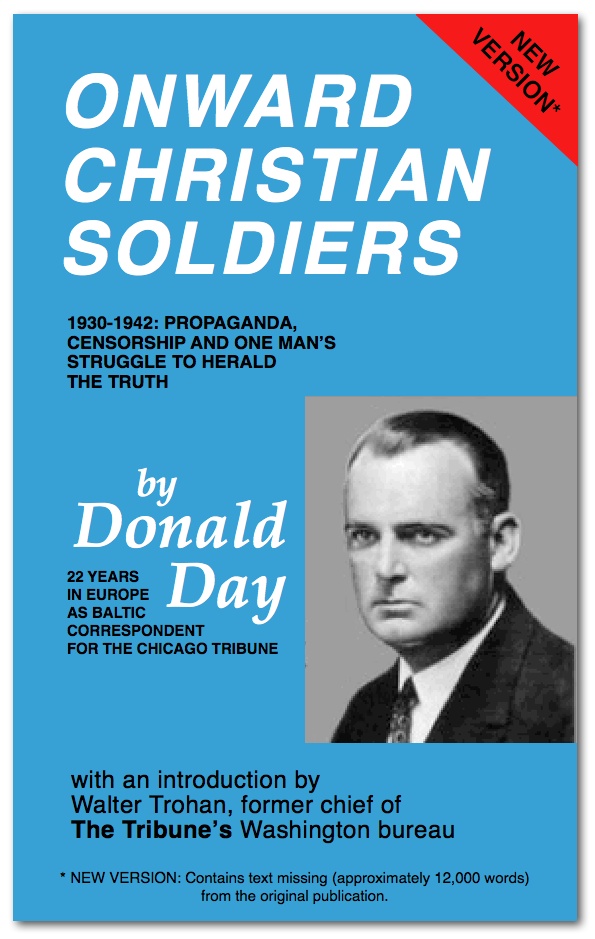
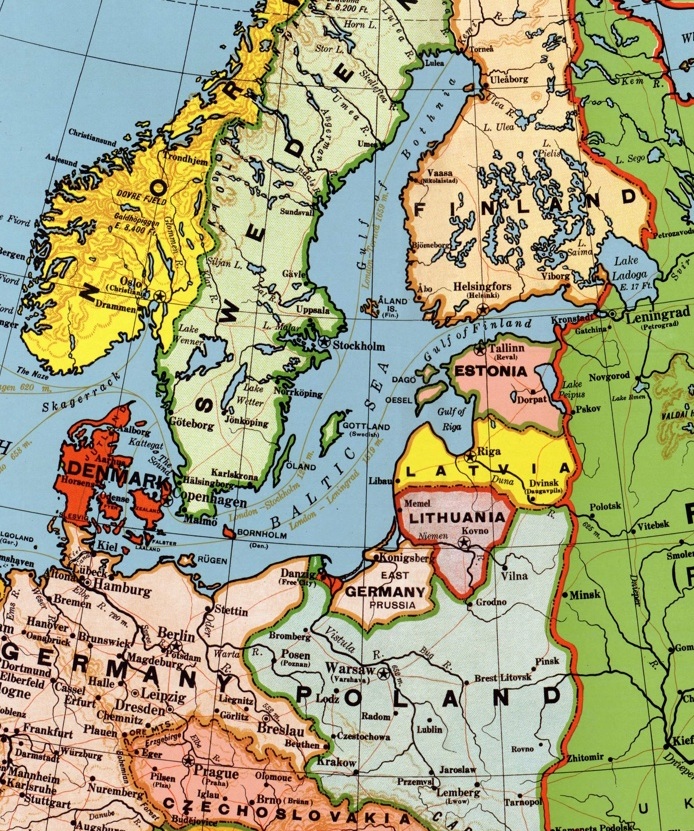
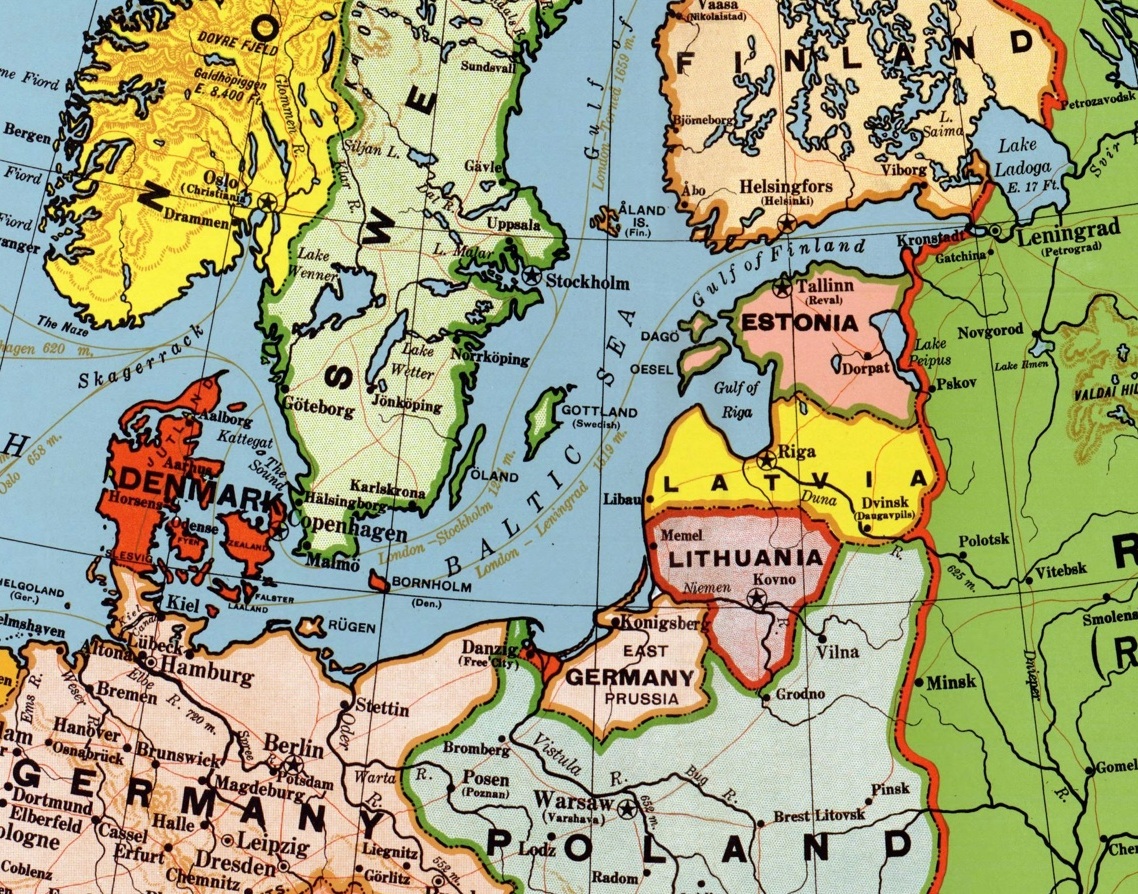
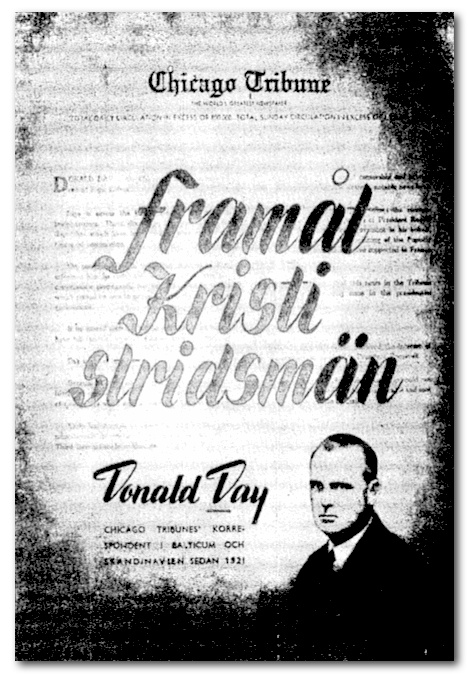

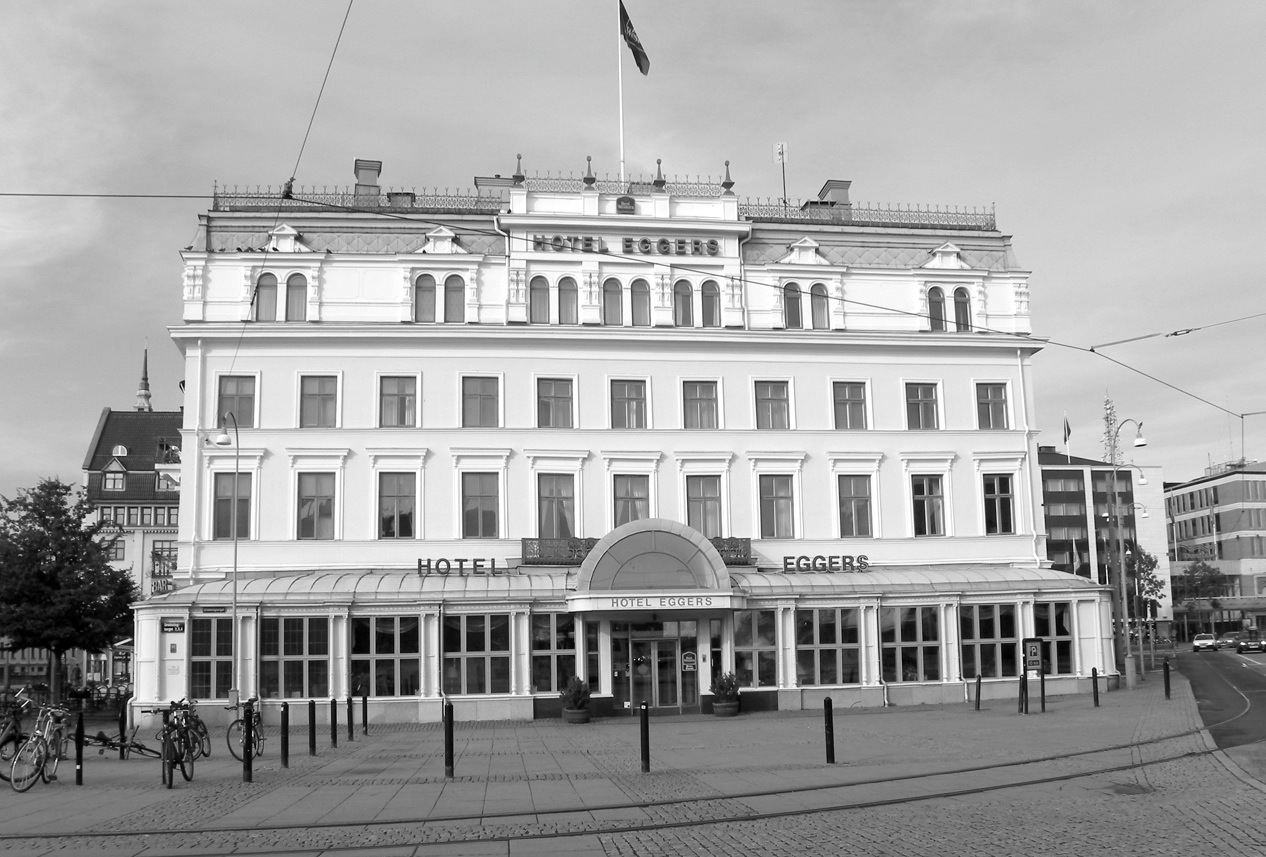

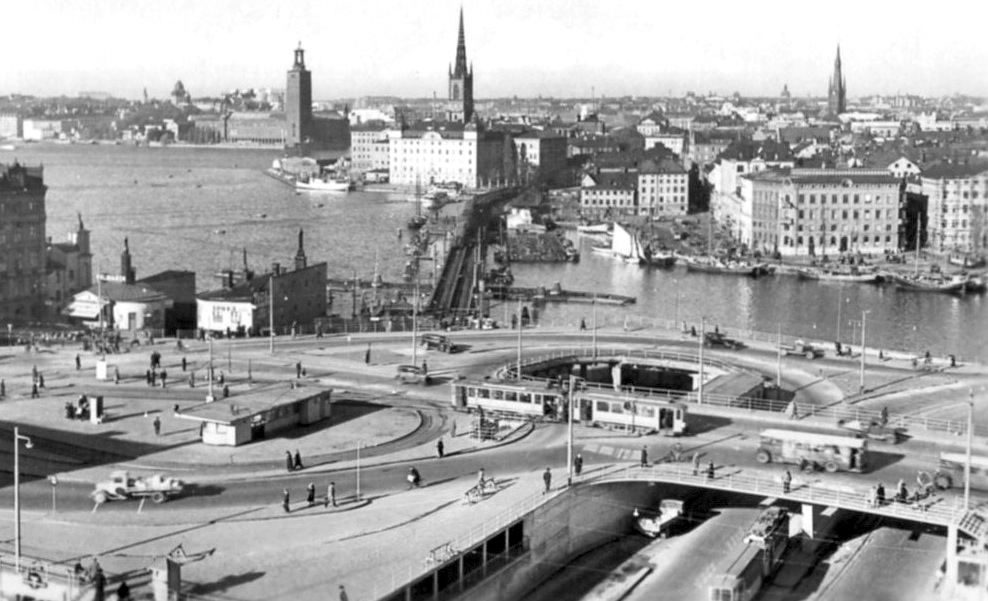
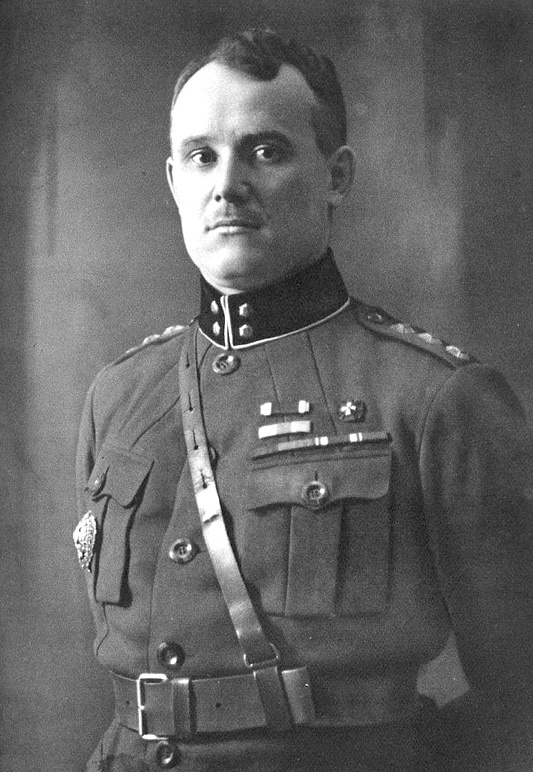
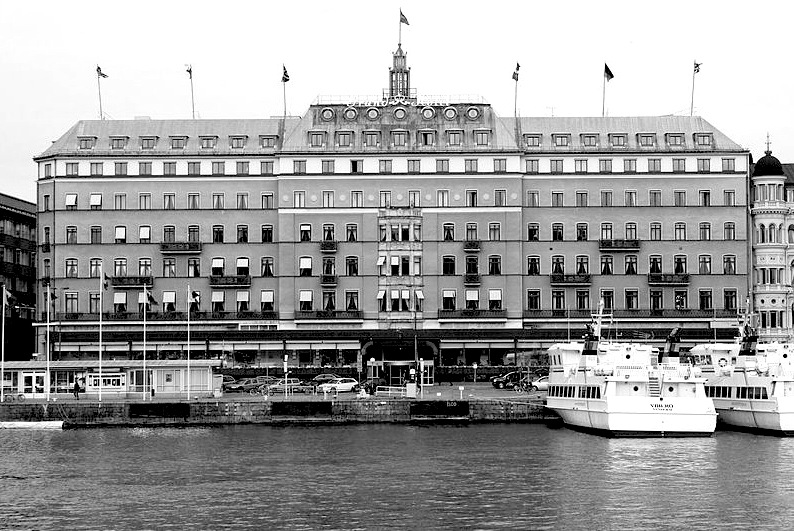
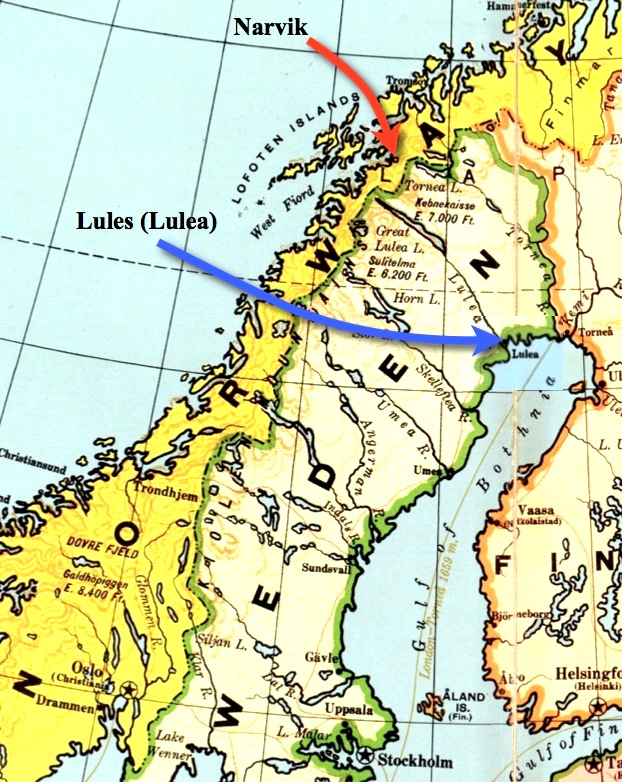
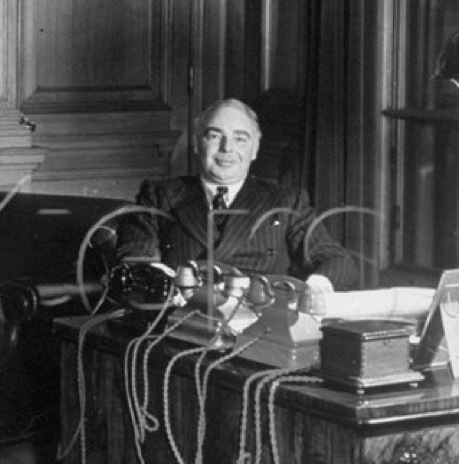
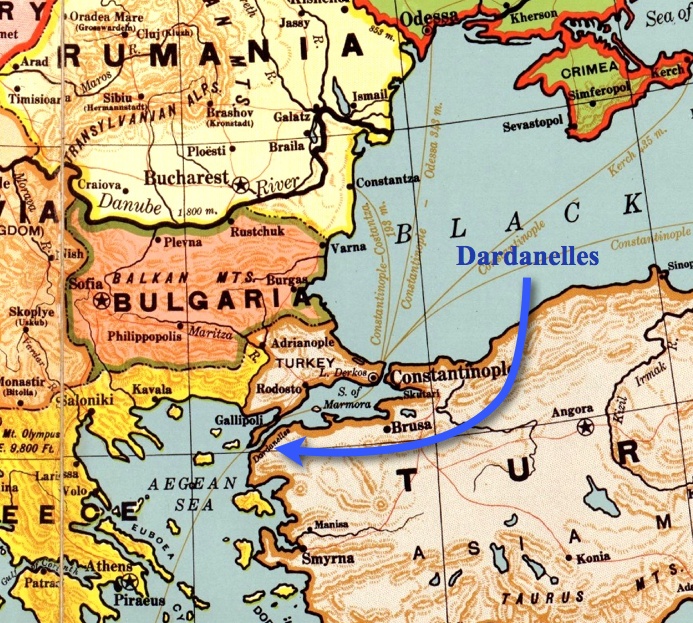
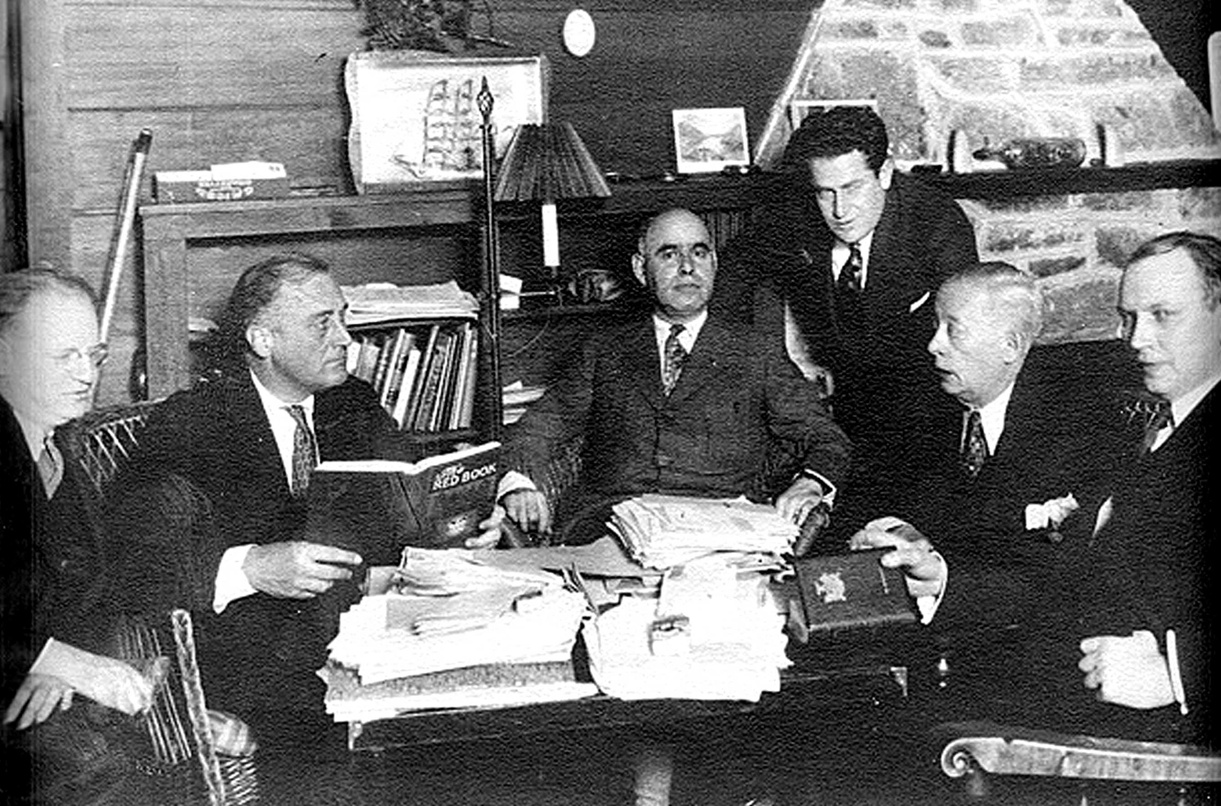
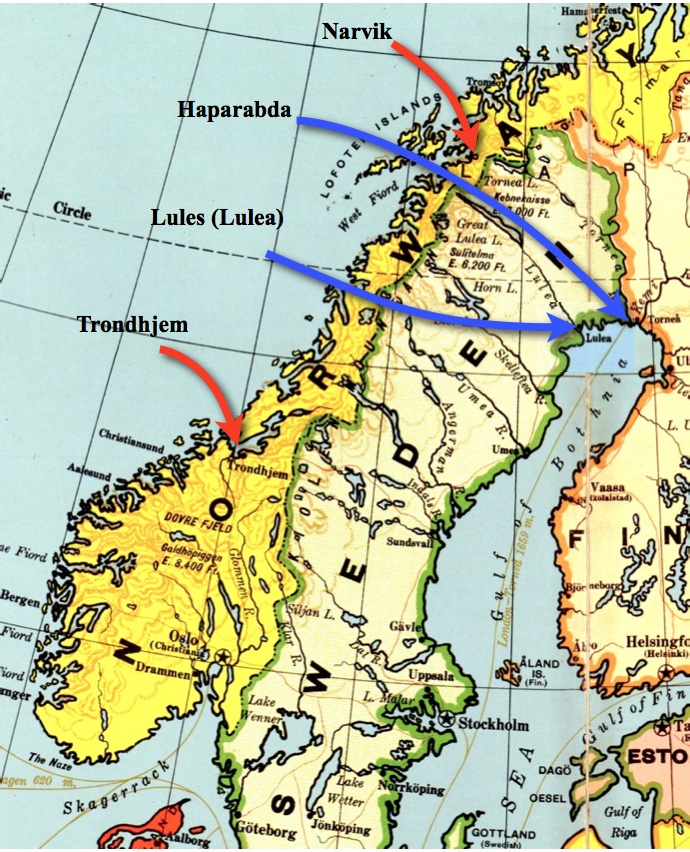
Pingback: Onward Christian Soldiers - Part 1: Reviews, Background Information - katana17katana17
Pingback: Onward Christian Soldiers - Part 2: Introduction; Permit Me To Introduce Myself - katana17katana17
Pingback: Jeff Ahl of the AfS - The Most Woke Swedish Politician Ever — TRANSCRIPT - katana17katana17